
Focus Features
F.W. Murnau's 1922 silent horror film "Nosferatu" is a "Dracula" adaptation, but it uses none of the character names from Bram Stoker's original novel. In "Nosferatu," actor Max Shreck's central vampire villain is named Orlok, not Dracula. The changes from "Dracula" to "Nosferatu" are commonly attributed to how the film played it loose with copyright laws. (Stoker's widow Florence Balcombe did not give permission to the filmmakers of "Nosferatu" to adapt from her husband's estate and was furious when she learned of the film.)
This has left "Nosferatu" something of a tangled legacy as a "Dracula" adaptation. It can be remade in its own right rather than later "Nosferatu" films being just more "Dracula" flicks.
When Werner Herzog remade "Nosferatu" in 1979, he split the difference. He titled his film as "Nosferatu the Vampyre," but his characters had Stoker's names: Klaus Kinski was Count Dracula, Bruno Ganz was Jonathan Harker, and Isabelle Adjani was Lucy Harker (a merging of the book's Mina Harker and Lucy Westenra).
Now, acclaimed filmmaker Robert Eggers has again remade "Nosferatu" and brought about a truly terrifying horror picture. Eggers' film hews closely to Murnau's original, down to reusing the invented character names like Thomas (Nicholas Hoult) and Ellen Hutter (Lily-Rose Depp). Whereas Kinski's Dracula looked a lot like Orlok, Eggers' film makes up actor Bill Skarsgård like the novel's Dracula (down to the mustache that most films leave out) while calling the character Count Orlok.
So, why did Eggers title his film "Nosferatu," even though that would invite specific (and demanding) comparisons to Murnau and Herzog? On the film's press circuit, he explained why he chose Murnau's Gothic "fairy tale" over Stoker's Victorian novel.
The original Nosferatu casts a shadow on Robert Eggers
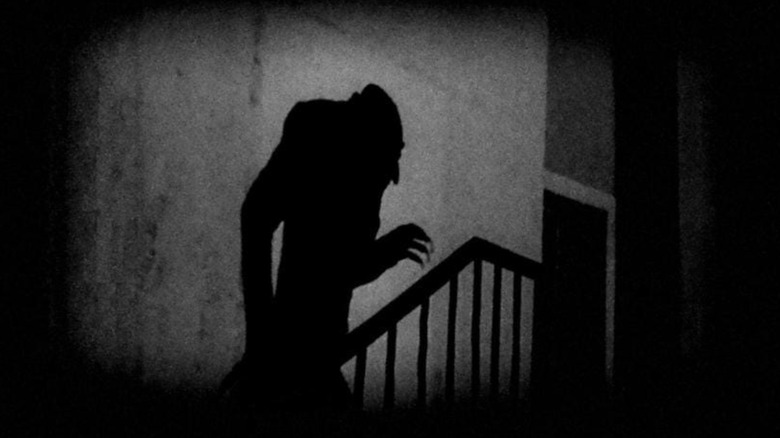
Prana Films
Eggers first saw the original "Nosferatu" when he was nine-years-old, growing up in New Hampshire. As he browsed his school library, he stumbled upon a vampire book that had Orlok on its cover, so then his mother rented the movie for him via a local video store. Eggers recalled his first time watching it during a conversation with Willem Dafoe (who plays Van Helsing analogue Professor Albin Eberhart Von Franz in Eggers' "Nosferatu") for GQ:
"We had to mail order it, because there was no internet, no Amazon. When it finally came I was very excited, it's funny because the VHS had no sound, there was literally no score on it. And I think the movie might not have had the same effect on me had it had a cheesy organ or synth score, but I was watching it utterly silent."
The movie impacted him so much that while in high school, he even staged a "Nosferatu" play with his classmate (and future theater director) Ashley Kelly Tata. Eggers starred as Orlok, and the production featured black-and-white painted sets and make-up to mimic the look of the film. Eggers' "Nosferatu" film is in color, but he and cinematographer Jarin Blaschke light the film's nighttime scenes in almost greyscale, making them look beautifully drained of color (see below):
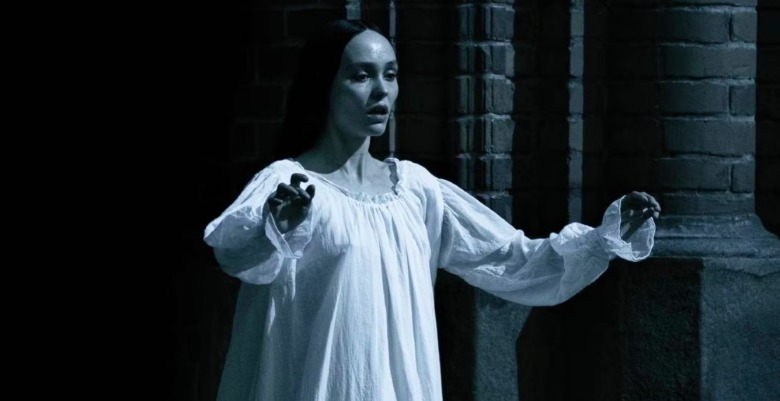
This "Nosferatu" play then attracted the attention of theater director Edward Langlois, who invited Eggers and Tata to stage it at his Edwin Booth Theatre in Dover, New Hampshire that summer. The experience "made me sure this [theater design and later film direction] was what I wanted to do with my career," recalled Eggers to Dafoe.
So, clearly, Eggers likes "Nosferatu" a lot. Him remaking it is akin to Peter Jackson remaking "King Kong," the movie that most inspired that filmmaker in his childhood. But what about Murnau's film captivated Eggers? In the aforementioned GQ interview, he elaborated:
"[Shreck's] performance, and the atmosphere of that film, and Murnau and [screenwriter Henrik] Galeen taking 'Dracula' and turning it into this really simple fairy tale with lots of enigma, it hit me harder than any other 'Dracula' I had seen before then or since."
Eggers made similar comments in an interview with Screen Rant, where he said admired the simplicity of "Nosferatu" over the more specific period setting of "Dracula":
"As much as I love the novel, it is a little bit overstuffed with Victoriana. I think something about the Murnau adaptation is just a simple fairy tale. I actually think that simple fairy tale that is at the core of the Stoker novel is the thing that has made it so adaptable and so versatile and kept people so inspired over the past century."
Eggers' films make different historical eras feel tactile through extensive research and unglamorous (but excellently crafted) production design — "Nosferatu" is no different. Despite that, his film's narratives are fairly simple, like dark fairy tales. His feature debut "The Witch" was even subtitled as "A New-England Folktale," while Eggers' "The Northman" retells the legend of Amleth, a classic Viking revenge story.
As for "Nosferatu," all versions do move the story from England to Germany, where so many surviving fairy tales were first written by the Brothers Grimm. Orlok also brings a plague with him that Dracula does not, making him into an even greater and more archetypal evil. (It also more revoltingly strengthens the xenophobic readings of "Dracula," with some pinning Murnau's "Nosferatu" as symptomatic of the then-surging antisemitism in Weimar Germany due to the vampire's caricatured appearance.)
Like many other fairy tale villains, Orlok's undoing is fairly simple too. That ending is another reason for Eggers' love of "Nosferatu."
The ending of Nosferatu empowers the vampire's prey
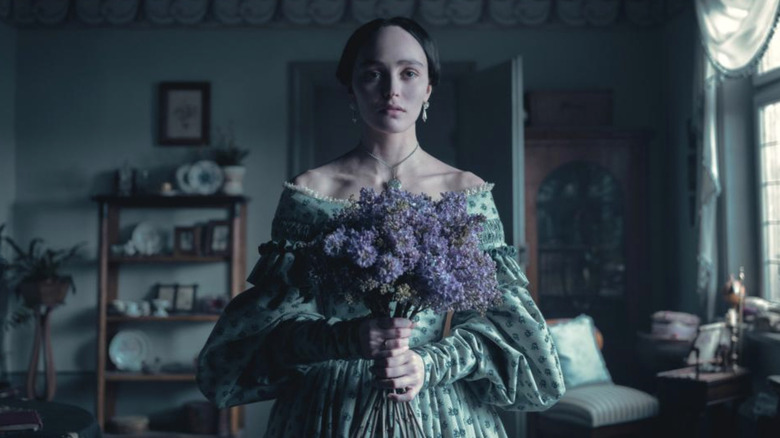
Focus Features
Spoilers for "Nosferatu" (2024) ahead.
In both Murnau and Eggers' "Nosferatu," Orlok is captivated by Ellen Hutter, just as Dracula was with Mina Harker. In both films, Ellen defeats the vampire by luring him to her bedroom, keeping him so busy feasting on her blood that he doesn't see the sun rising to smite him. Ellen dies, but so does Orlok, and the plague he brought is lifted. Compare that to Stoker's "Dracula," where Harker, Van Helsing, and co. hunt down Dracula, stabbing and decapitating him.
In the aforementioned Screen Rant interview, Eggers added that Ellen's sacrifice gives the story extra power for him:
"Something that I really loved about the Murnau film is that it ends with the female protagonist being the heroine. I thought that it would be potentially more exciting if the whole film is told through her eyes, because it had the potential to be more emotionally and psychologically complex than an adventure story about a real estate agent. As much as it is a scary horror movie — and it is, there's even jump scares — it is a gothic romance, and it's a tale of love and a tale of obsession."
Francis Ford Coppola's extravagant "Dracula" made the Count (Gary Oldman) and Mina (Winona Ryder) into genuine, reciprocated lovers — Mina was the reincarnation of Dracula's lost love, Elisabeta, you see. Eggers' "Nosferatu" similarly gives Orlok and Ellen a history, but not a truly romantic one.
In keeping with Eggers' comments on centering the film around Ellen, the nouveau "Nosferatu" opens during her childhood. Ellen, her face barely peeking out of the darkness, is praying for a companion to ease her troubles; Orlok answers her call as a Bad Samaritan, amplifying her melancholy rather than curing it. As Ellen explains later, she only cast out Orlok when she met her true love, Thomas, but Orlok never forgot her. Thomas Hutter isn't summoned to Orlok's castle by chance; no, the vampire wants him dead so he might reclaim Ellen.
The ending of Eggers' "Nosferatu" hits the same beats as Murnau, but as Roxana Hadadi wrote at Vulture, it gains new power as a woman destroying her abuser by owning her sexuality. Depp, at least, found Ellen to be an "incredibly empowering" character to play (via Deadline):
"Ellen's perspective is one that we've never gotten to see in such a central way as this one, and Rob made the deliberate choice to make Ellen's perspective the central one. And we see the story really unfold through her eyes, which I think was such a beautiful thing, and was an honor for me to play."
I love Coppola's "Dracula" and all its romantic passion, so I'm not saying Eggers' approach is inherently better. But when a story is over 100 years old, you've got to try something different each time you retell it. Eggers' didn't call the movie "Dracula," but his "Nosferatu" is an effective merging of the two modern, competing characterizations of the vampire: a monstrous predator and an obsessive lover.
"Nosferatu" is now playing in theaters.

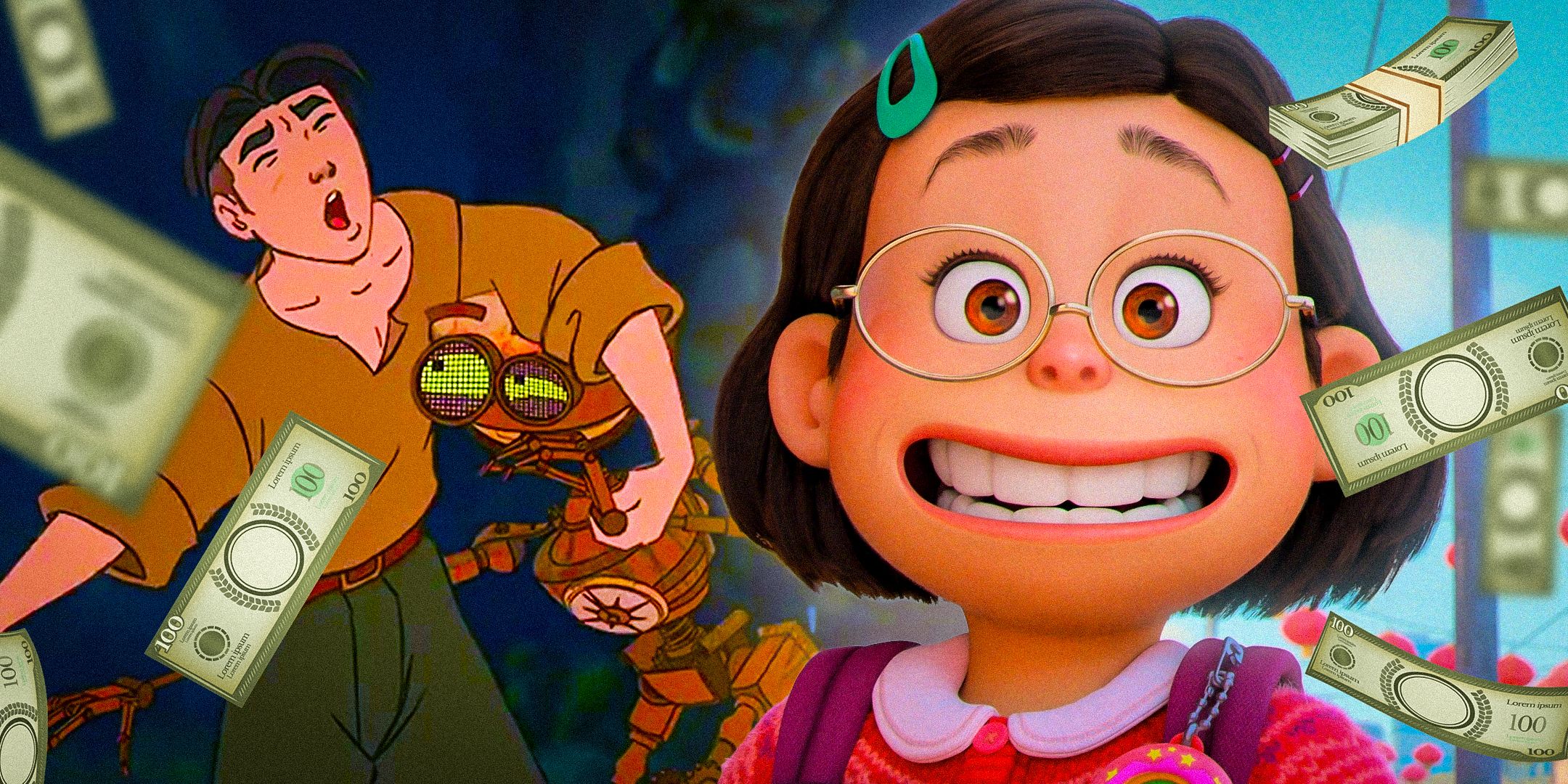
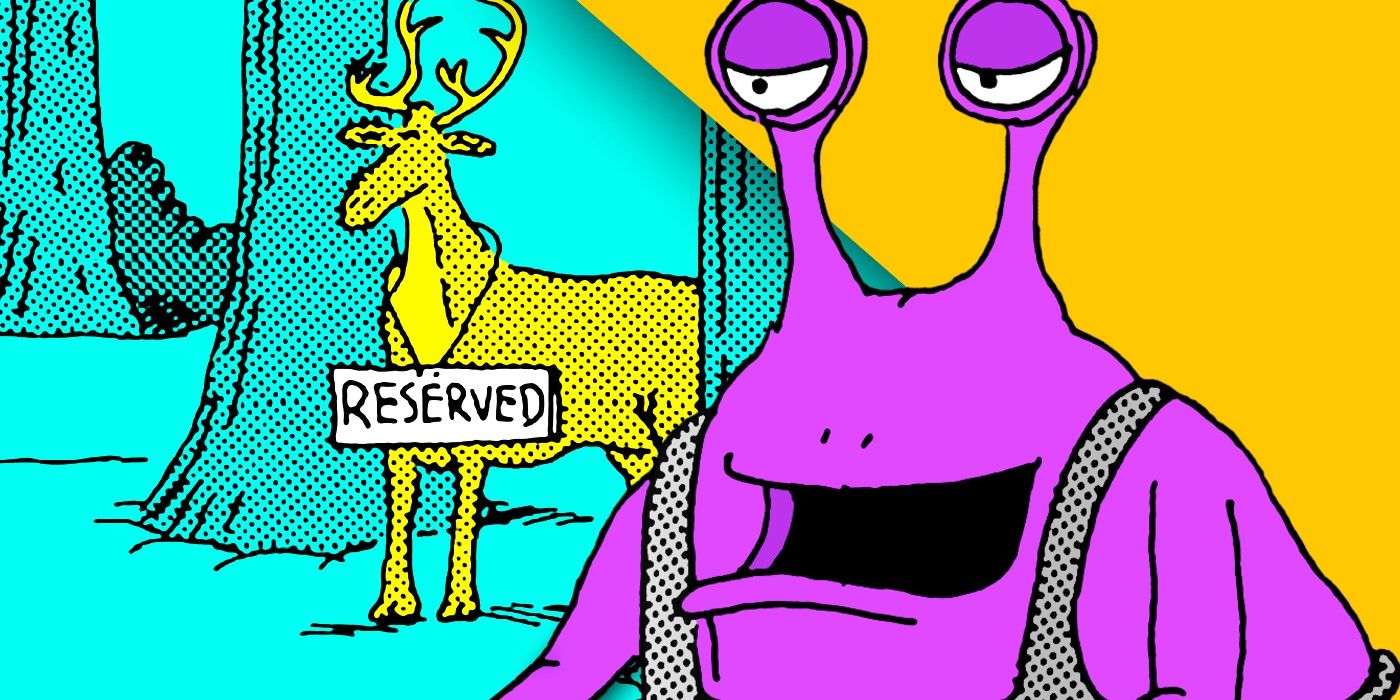





 English (US) ·
English (US) ·